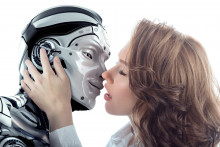Euthanasia has been legal in the Netherlands for over 16 years now. The Sarco Pod brings the discussion about this controversial topic back, as it is, shortly said, an euthanasia machine. With a blink of an eye, liquid nitrogen is released into the chamber in which the patient lies. The procedure ensures the patient dies a ‘peaceful death’, after which the pod can be used as a coffin. As Dr Philip Nitschke, inventor of the Sarco Pod, intends to make the blueprints open source, euthanasia could become a do-it-yourself project in the future. It might sound like something straight out of a science fiction movie, but the first full-functional Sarco device is set to be built later this year in the Netherlands. We asked Timon van Zijp, student of Technical Medicine, and Varun Sudhakar, student of Advanced Technology for their thoughts on all this.
Should people have the right to choose when and how they die?
Van Zijp: ‘I tend to say no, but I recognize that it is impossible to make a general statement about it. There are cases in which the patient has not long left to live and only has pain and suffering on the horizon. Then euthanasia could be justified. On the other hand, there are many cases of people willing to die, who do have more positive prospects. We should first see if we can make their remaining life better, before turning to euthanasia.’
Should euthanasia be accessible for those who want it?
Sudhakar: ‘Many aspects aside from the morality of the practice come into play in the debate on euthanasia. There is the financial aspect, in that a huge portion of the economy - between one and seven billion dollars annually in the USA - has been spent on keeping people in a vegetative state alive. Compare this to euthanasia drugs, and the latter is a much cheaper, one-time cost. Besides this, there is the emotional and psychological aspect. A level of dignity is stripped from you when you cannot longer live without assistance. If I look at my grandfather, it took an emotional toll on him to see the pity in people’s eyes when they helped him. He suffered a lot, and while this may sound bad, I honestly wish he died earlier so that he would have suffered less. Therefore, I think euthanasia should be an option, because the emotional and monetary toll of keeping a person alive for no reason is great.’
Old or sickly people can feel guilty for placing this emotional and monetary burden on their relatives, and thus the ‘right to die’ can become a ‘duty to die’. Do you see this as a valid concern?
Van Zijp: ‘I think it is a societal problem if invalids or elderly think that they are a burden on people. The possibility of euthanasia gives people the opportunity to see themselves in that way, as they see that dying is cheaper. The solution for this is to address this incorrect mind-set, not to euthanize the people who hold it.’
Sudhakar: ‘I think at the end of the day, it all boils down to individual freedom. They lived as much as they could and do not want to become a burden as they become increasingly helpless. Those people should be allowed to decide that they want their life to end at that point. The dignity that was lost is regained when they can make that choice about their own life. We have freedom of thought and freedom of expression, so we should also have the freedom to choose when we want to die.’
But just as prolonging someone’s life can negatively affect those around them, so can the decision to end their life.
Sudhakar: ‘You have to make a choice based on how this will affect your family in the long term. What value is this vegetative person providing? Do you want to invest your time and money into an old dying person who already lived the majority of his life, or do you want to invest in a young child who has his whole life ahead of him? Should we hold on to the past, or look towards the future? Indeed, euthanizing that person comes with guilt and wondering if it was the right decision, but at a certain point you will accept that it was the decision you had to make. I believe euthanizing has a much less profound emotional impact than would prolonging the life and suffering of the loved one.’
Van Zijp: ‘Still, it is different for each family. There are families who think the complete opposite as you do, and have a very hard time coping. For some cases it would be better to euthanize, in other cases not.’
There are many people who suffer from mental issues. If you say that it is often better to be euthanized than to suffer, shouldn’t euthanasia then be an option for them as well?
Sudhakar: ‘Euthanasia should not – and is not – an option for those suffering from mental illnesses. The euthanasia process is highly regulated with very strict protocols and selection criteria, including a psychological evaluation to ensure you are of a sound mind and that you are not trying to do it as a form of committing suicide.’
Van Zijp: ‘The first line of action should be to treat the mental illness. If it has been concluded that the patient cannot be treated anymore and is only suffering, then euthanasia becomes an option.’
Euthanasia is regulated and performed by experienced doctors. If the Sarco Pod becomes open-source, wouldn’t it blur the line between euthanasia and suicide?
Sudhakar: ‘Having the Sarco Pod open-source is completely wrong: this trivializes euthanasia. Ending your life should be a drawn-out process as it gives the person the chance to reconsider their decision, or at least consider every aspect of it. In contrary, using the Sarco Pod is like building an Ikea table at home: you don’t have the time to process what you are doing. Furthermore, the online test that guards the Sarco Pod is algorithm-based. Euthanasia warrants personal, face-to-face interaction with a counsellor to ensure everyone involved is aware of the gravity of the decision they are making. The Sarco Pod should only be accessible to hospitals and regulated in the same way as existing methods.’
Van Zijp: ‘I cannot imagine a suicidal person would go through the trouble of downloading the blueprint and assembling it himself to commit suicide, so I don’t think that is a real threat. However, we do need to be aware of the influence is has on the way we think about suicide and euthanasia.’
What, then, are the consequences this will have for people’s mentality on life and death?
Van Zijp: ‘Making euthanasia easier and more accessible through the Sarco Pod being open-source could lower the threshold at which people make the decision to die.’
Sudhakar: ‘It promotes the mentality of “it is okay to give up, you don’t need to fight harder because you can always just kill yourself”. Humans will never progress if we are okay with giving up.’






